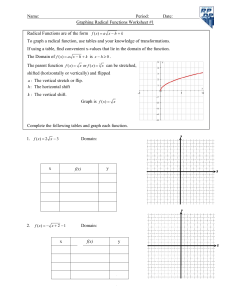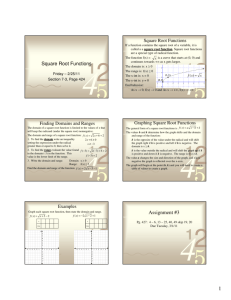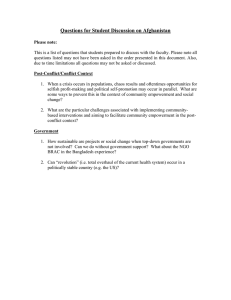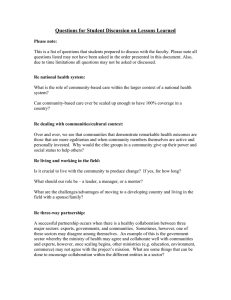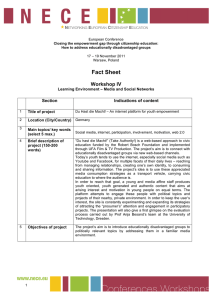Document 12649520
advertisement
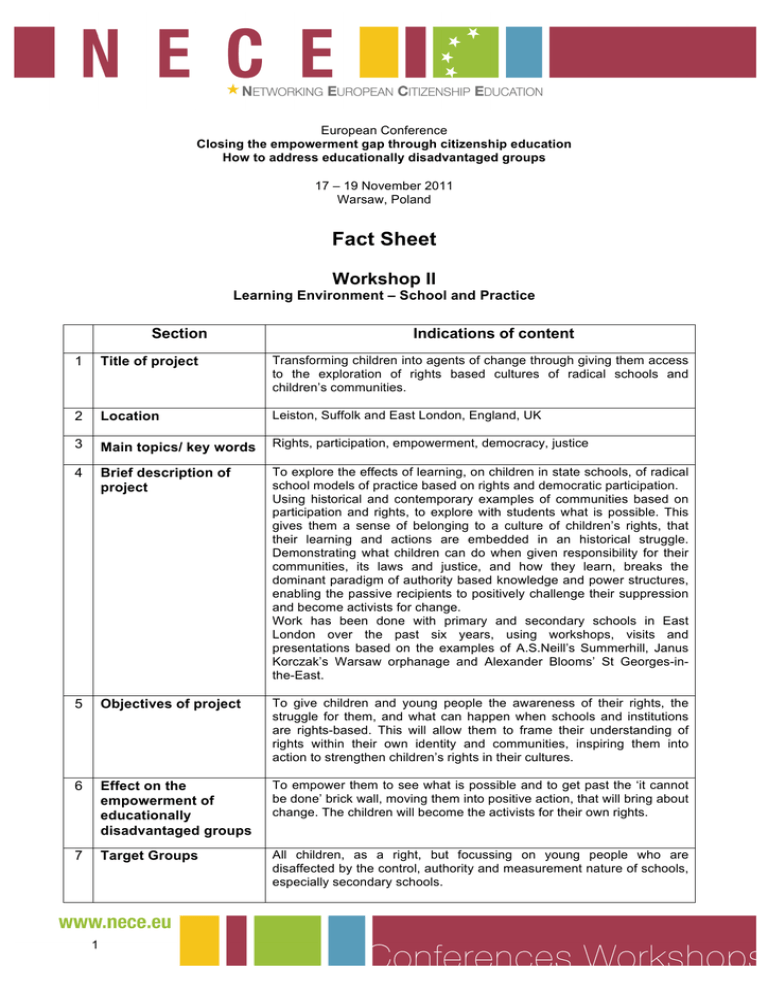
European Conference Closing the empowerment gap through citizenship education How to address educationally disadvantaged groups 17 – 19 November 2011 Warsaw, Poland Fact Sheet Workshop II Learning Environment – School and Practice Section Indications of content 1 Title of project Transforming children into agents of change through giving them access to the exploration of rights based cultures of radical schools and children’s communities. 2 Location Leiston, Suffolk and East London, England, UK 3 Main topics/ key words Rights, participation, empowerment, democracy, justice 4 Brief description of project To explore the effects of learning, on children in state schools, of radical school models of practice based on rights and democratic participation. Using historical and contemporary examples of communities based on participation and rights, to explore with students what is possible. This gives them a sense of belonging to a culture of children’s rights, that their learning and actions are embedded in an historical struggle. Demonstrating what children can do when given responsibility for their communities, its laws and justice, and how they learn, breaks the dominant paradigm of authority based knowledge and power structures, enabling the passive recipients to positively challenge their suppression and become activists for change. Work has been done with primary and secondary schools in East London over the past six years, using workshops, visits and presentations based on the examples of A.S.Neill’s Summerhill, Janus Korczak’s Warsaw orphanage and Alexander Blooms’ St Georges-inthe-East. 5 Objectives of project To give children and young people the awareness of their rights, the struggle for them, and what can happen when schools and institutions are rights-based. This will allow them to frame their understanding of rights within their own identity and communities, inspiring them into action to strengthen children’s rights in their cultures. 6 Effect on the empowerment of educationally disadvantaged groups To empower them to see what is possible and to get past the ‘it cannot be done’ brick wall, moving them into positive action, that will bring about change. The children will become the activists for their own rights. 7 Target Groups All children, as a right, but focussing on young people who are disaffected by the control, authority and measurement nature of schools, especially secondary schools. 1 8 Project methods/ Project format Use of short presentations, role play of democratic decision making in terms of law and justice, use of video drama, documentary, interviewing witnesses and experts. Visits to schools, classroom work, mini-school conferences of children, and teacher development. 9 Project results/ Project Evaluation/ Materials Feedback surveys from participants (use of short presentations, role play of democratic decision making in terms of law and justice, use of video drama, documentary, interviewing witnesses and experts. Visits to schools, classroom work, mini-school conferences of children, and teacher development and adults); paper research or use of similar activities; partnership work with experts in examples of practice; development through practice and trialling of activities to create a published outcome that will allow others to use the models in their teaching and classrooms. 10 Project Duration Work over the past five years, and further development in the next two, in term of publishing, sharing and distributing. 11 Range and sustainability of the project Once published the activities and materials will be available to all teachers providing a radical resource that will create debate amongst adults and children about the aims, functions and nature of schools, teaching, learning and children’s rights. 12 Contact information Michael Newman Summerhill School Westward Ho Leiston Suffolk IP16 4HY United Kingdom E-Mail: hecnewman@yahoo.co.uk Phone: 0044 1728 830 540 2
